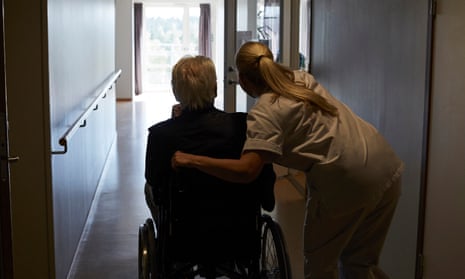Heads of adult social services share concern at the poor quality of some care and support for people living with dementia (Dementia patients in England facing ‘national crisis’ in care safety, 28 December). But as your report makes clear, the underlying cause is inadequate funding of our social care system. We must take issue with the claim by a Department of Health and Social Care spokesperson quoted in the report that the government is giving social care “the biggest funding increase in history” of “up to £7.5bn available over the next two years”.
Part of this funding is extensions to existing short-term grants, part is extensions to winter funding focused on hospital discharges and part is dependent on council tax rises, which not all local authorities will impose. While there is some additional general social care grant from the government, it is to be shared with children’s services. In the past, the split has been 50:50. Given people’s rising needs and care providers’ spiralling costs, the funding package is helpful, but nowhere near what is needed. It certainly falls well short of the £7bn a year extra for social care that the chancellor, Jeremy Hunt, identified as necessary when he was chair of the Commons health and social care select committee.
Sarah McClinton
President, Association of Directors of Adult Social Services
The neglectful treatment of older people with dementia is not new. And, as Helen Wildbore from the Relatives & Residents Association tells us (Complained about neglect in a care home and faced a visiting ban? This is the new normal, 29 December), this is yet another expression of the wider crisis facing social care. We don’t have to search far for some of the reasons that explain this appalling behaviour: too few staff employed to provide an adequate service; poor access to training to prepare staff for the difficult and demanding work; and inadequate leadership and supervision to counter poor practice.
But the Care Quality Commission, whose reports of inspections detail the failures at homes that it had previously considered to be “good”, must also accept responsibility. When it becomes known that securing a “good” rating gives your home an “inspection holiday”, as is the present practice, then managers are likely to feel relieved. However, relief can easily turn to complacency, then indifference and then the rot sets in, and becomes the new normal. Annual inspection (as a minimum) should be reinstated, along with at least one further unannounced visit each year. Poor performance should lead to more frequent inspection – with severe sanctions where homes are found wanting.
Les Bright
Exeter, Devon
